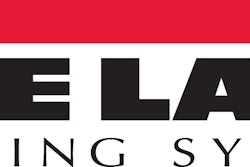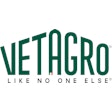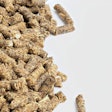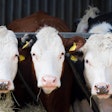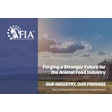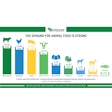The American Feed Industry Association (AFIA) wrapped up its 11th annual Pet Food Conference in conjunction with the International Production & Processing Expo (IPPE) in Atlanta, Georgia. The event brought together more than 300 industry leaders to discuss everything from modernizing pet food labels to evaluating new pet food ingredients, helping them tackle the latest challenges in the evolving marketplace.
“AFIA’s Pet Food Conference provides a forum for leaders in the industry to discuss and learn about the top pet food trends,” said Leah Wilkinson, AFIA’s vice president of public policy and education. “We had a full house and some great speakers who sparked lively discussions at this year’s conference.”
The AFIA Pet Food Conference, one of three AFIAsponsored events at IPPE, is a conference designed to inform pet food representatives about the latest industry initiatives and educate them on technical and regulatory issues impacting this unique animal food manufacturing sector. This year’s program included seven expert speakers from associations, private entities and universities, who discussed a variety of topics, including: international trade, challenges and opportunities in the ingredient supply, modernization of the American Association of Feed Control Officials (AAFCO) pet food labeling regulations, animal health and more.
Jared Koerten from Euromonitor International kicked off the day with his presentation on domestic and global industry trends, discussing emerging markets, the growth of e-commerce in pet care, and the effects that the humanization of pets is having on the pet food industry. Jared Koerten discusses domestic and global trends in the pet food industry at AFIA's Pet Food Conference. According to Koerten, sales of pet care products in the United States has increased more than 20% in the last five years. In addition, premium pet foods and online pet care stores and subscription services are increasing in popularity due to consumers aiming to save time while purchasing the best quality products for their pets.
George Collings, Ph.D., Collings Ingredients Solutions, also talked about the shift in pet food product offerings in the marketplace over the past 50 years, from the introduction of veterinary foods in the 1960s to higher energy and super-premium foods in the 1970s and 80s, to recent trends for organic, holistic and human-quality food.
Although many consumers regard their pets as part of their families, he cautioned the industry to manage those expectations, particularly in marketing efforts, since human food does not always provide a complete and balanced diet for pets and many ingredients approved for humans are not approved for pets.
In a presentation titled “Nitrogen, Amino Acids and/or Protein,” Anna Kate Shoveller, BScH, Ph.D., from the University of Guelph, discussed the sustainability of dietary protein, which she said is necessary to ensure “a better quality of life for everyone and the ability of society to be maintained over the long term.” Not only does sustainable protein impact pets, she said it also impacts the environment and the entire food chain’s profitability. She said it will help to “meet the needs of the present without compromising the ability of future generations to meet their needs.”
IPPE is a collaboration of three shows – the International Feed Expo, International Meat Expo and International Poultry Expo – representing the entire chain of protein production and processing. The annual event is sponsored by AFIA, the North American Meat Institute and the U.S. Poultry & Egg Association.




